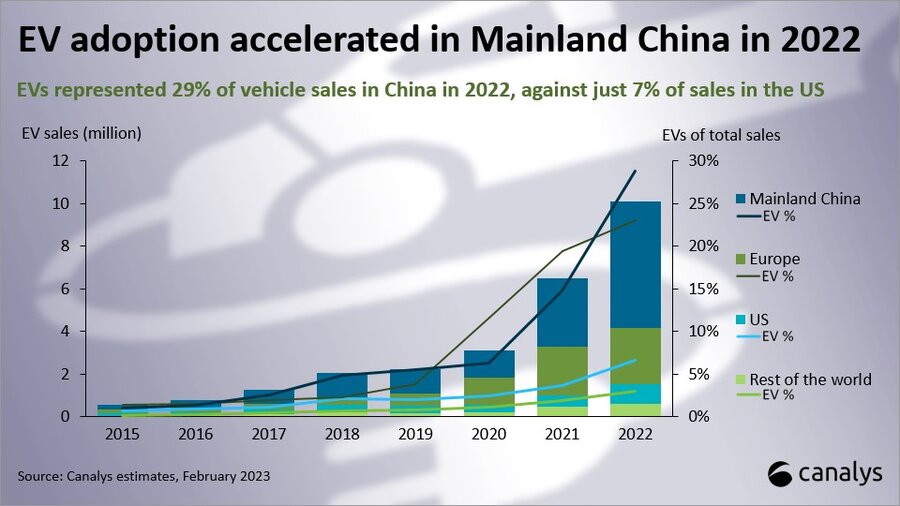China’s Role in Revolutionizing the Global Electric Vehicle Market

Almost half of all cars sold in China last year were electric vehicles (EVs), marking a significant shift in the automotive landscape. This trend is not just about environmental concerns; many drivers, like private hire driver Lu Yunfeng, are turning to EVs for financial reasons. With the rising costs of petrol, electric vehicles have become a practical choice for many consumers in China, where the government has heavily invested in the EV industry. As the country continues to lead the global market in electric vehicle sales, analysts are examining how this transformation occurred and what it means for the future of transportation.
China’s Electric Vehicle Revolution
At the start of the 21st century, China set ambitious goals to dominate future technologies, transitioning from a nation of bicycles to the world’s leading producer of electric vehicles. In cities like Guangzhou, with a population exceeding 18 million, the sound of traditional combustion engines is being replaced by the quieter hum of electric cars. Auto sector analyst Michael Dunne asserts that China is significantly ahead of other countries in the EV sector, claiming it is “10 years ahead and 10 times better” than its global competitors. This rapid advancement has positioned China as a powerhouse in the electric vehicle market, with local manufacturers like BYD surpassing established brands such as Tesla in sales.
The Strategy Behind the Success
The rise of China’s electric vehicle industry can be traced back to strategic planning initiated by Wan Gang, a former minister of trade and science. Recognizing that China was the largest car market but dominated by foreign brands, Wan advocated for a shift towards electric vehicles. Although the government had included EVs in its economic plans as early as 2001, substantial subsidies and support only began in the 2010s. The Chinese government has invested approximately $231 billion in the EV sector from 2009 to 2023, fostering a robust ecosystem that includes manufacturers, battery suppliers, and infrastructure development. This long-term vision has enabled China to build the world’s largest public charging network, making it convenient for drivers to access charging stations.
Consumer Incentives and Market Dynamics
Government incentives play a crucial role in making electric vehicles financially attractive to consumers. Subsidies for trading in non-electric cars, tax exemptions, and reduced charging costs have encouraged many drivers to switch to EVs. For instance, Lu Yunfeng, who transitioned to an electric vehicle two years ago, now spends significantly less on fuel compared to his previous petrol car. Additionally, the availability of green vehicle registration plates at no cost further incentivizes consumers to choose electric options. The rise of automated battery swapping stations, like those offered by Nio, also enhances the convenience of owning an electric vehicle, allowing drivers to replace depleted batteries in under three minutes.
Challenges and Future Prospects
Despite its success, China’s dominance in the EV market faces scrutiny from other countries. The U.S., Canada, and the European Union have imposed tariffs on Chinese electric vehicles, citing unfair competition due to government subsidies. However, the UK has opted not to follow suit, presenting an opportunity for Chinese manufacturers like XPeng and BYD to expand their presence in the British market. As Western nations aim to phase out petrol and diesel vehicles by 2030, China’s established infrastructure and manufacturing capabilities position it as a key player in the global transition to electric mobility. While concerns about data security and reliance on Chinese technology persist, many consumers, like Sun Jingguo in Guangzhou, view the advancements in EV technology as a positive development for the world.
Observer Voice is the one stop site for National, International news, Sports, Editor’s Choice, Art/culture contents, Quotes and much more. We also cover historical contents. Historical contents includes World History, Indian History, and what happened today. The website also covers Entertainment across the India and World.
Follow Us on Twitter, Instagram, Facebook, & LinkedIn

